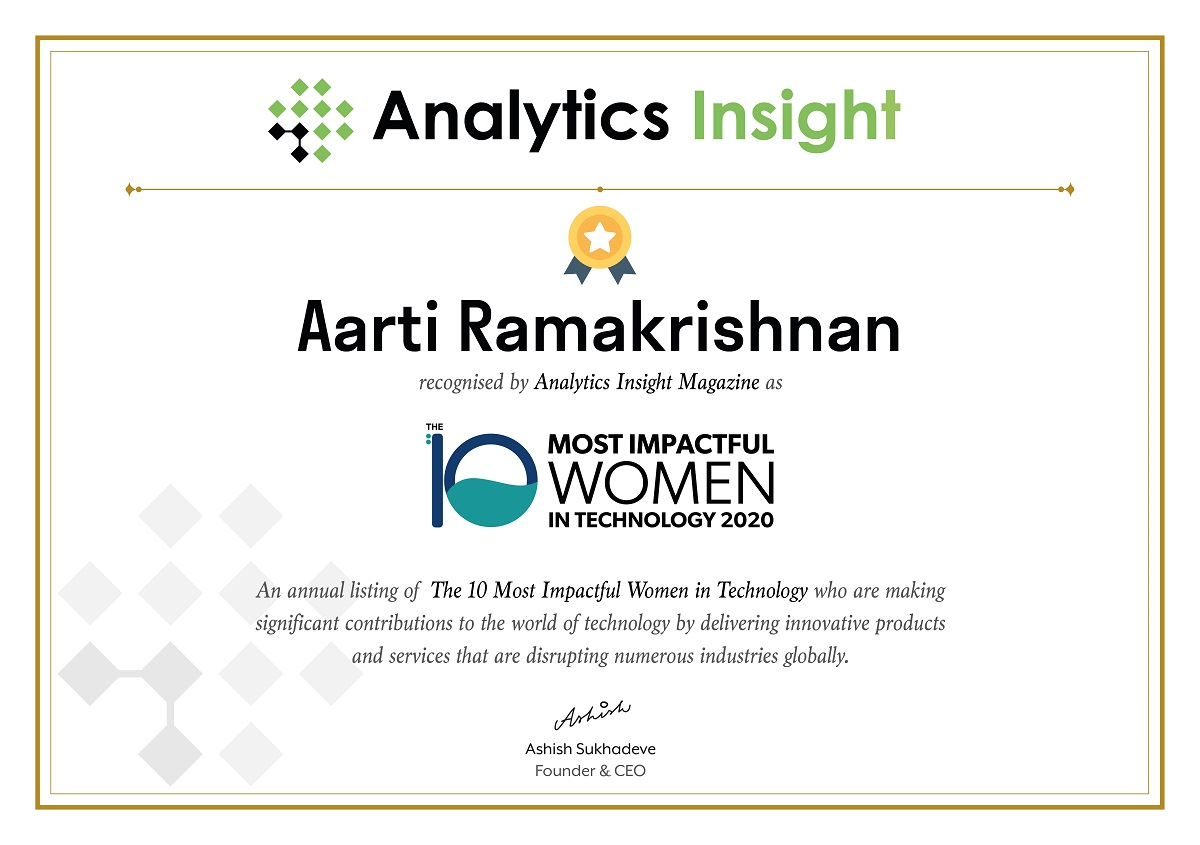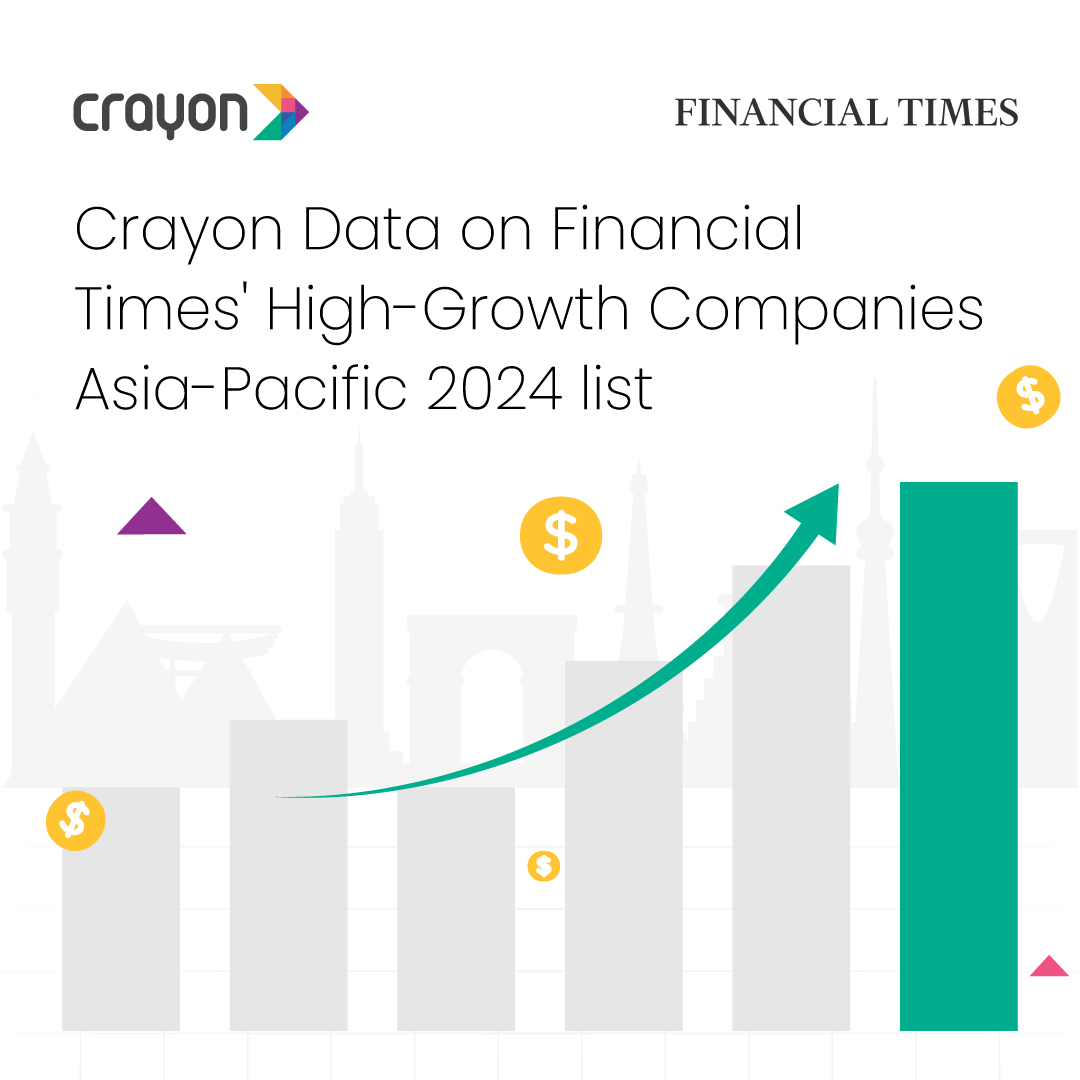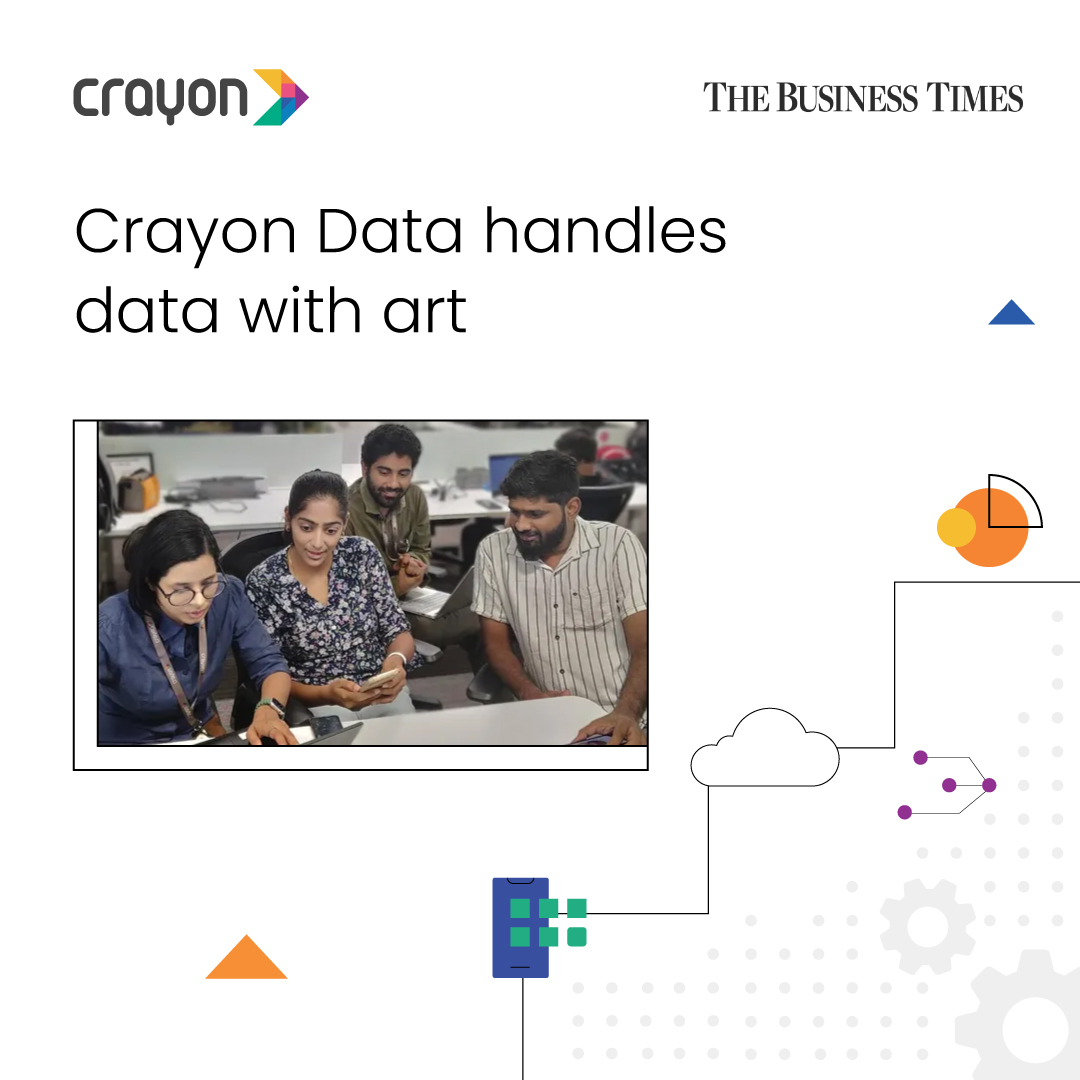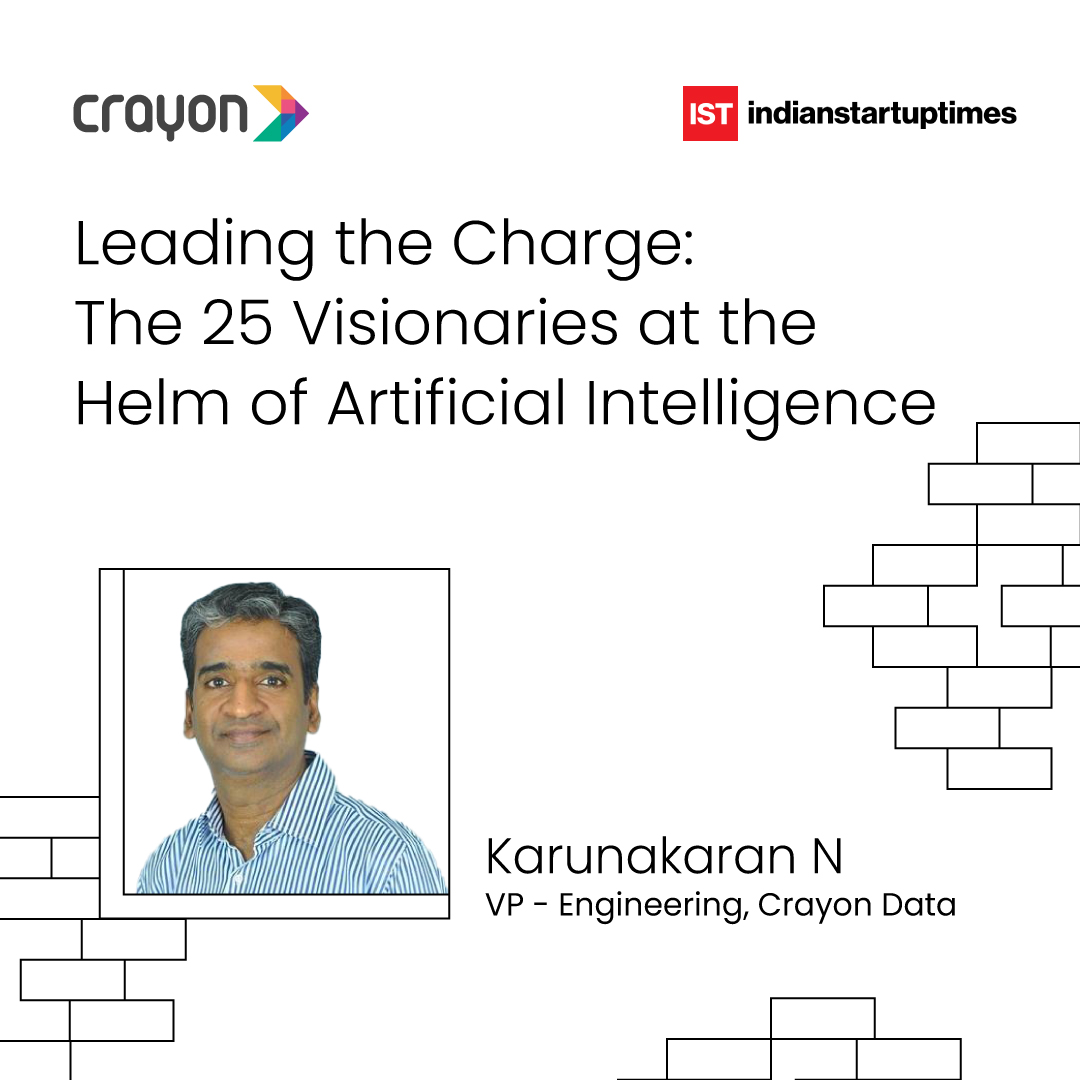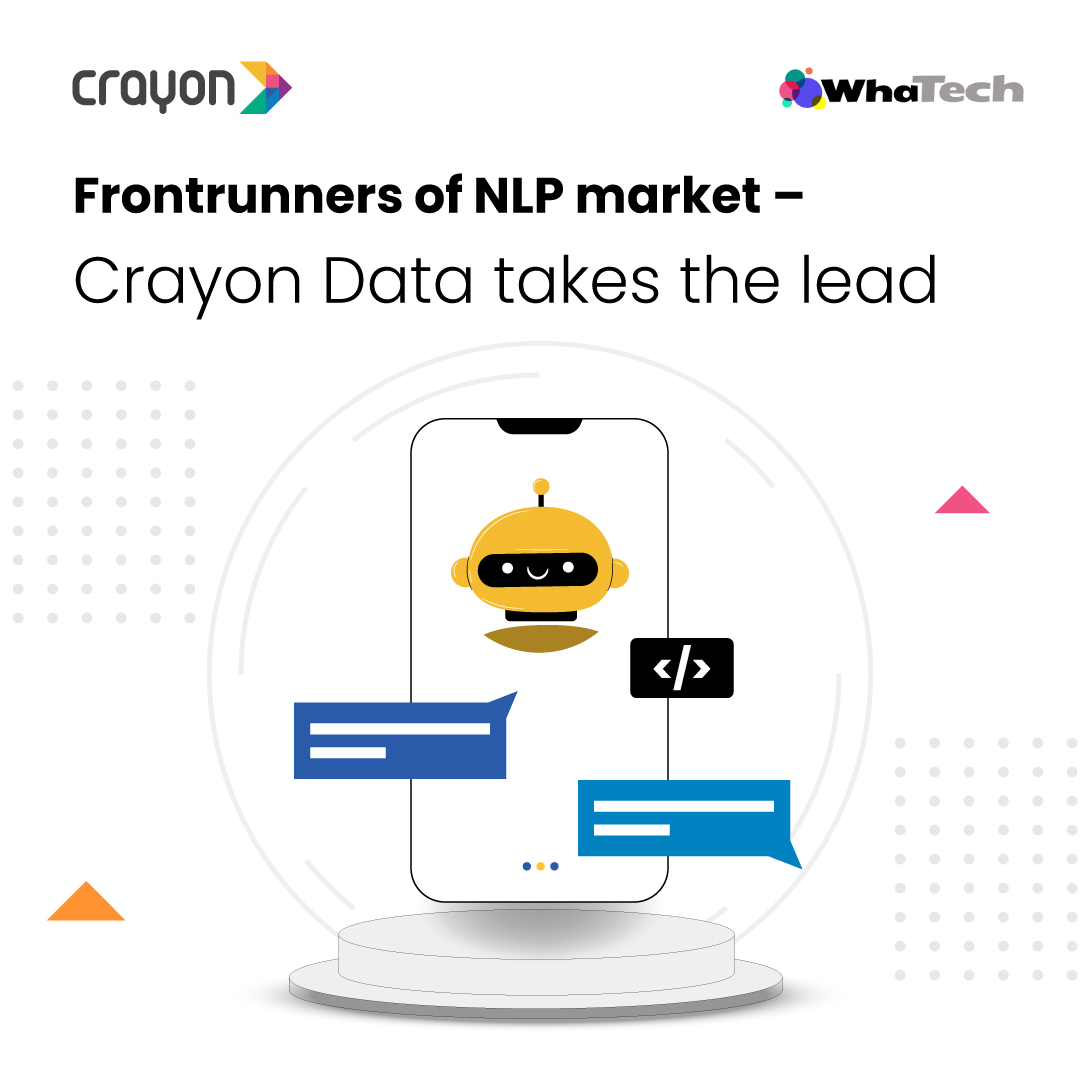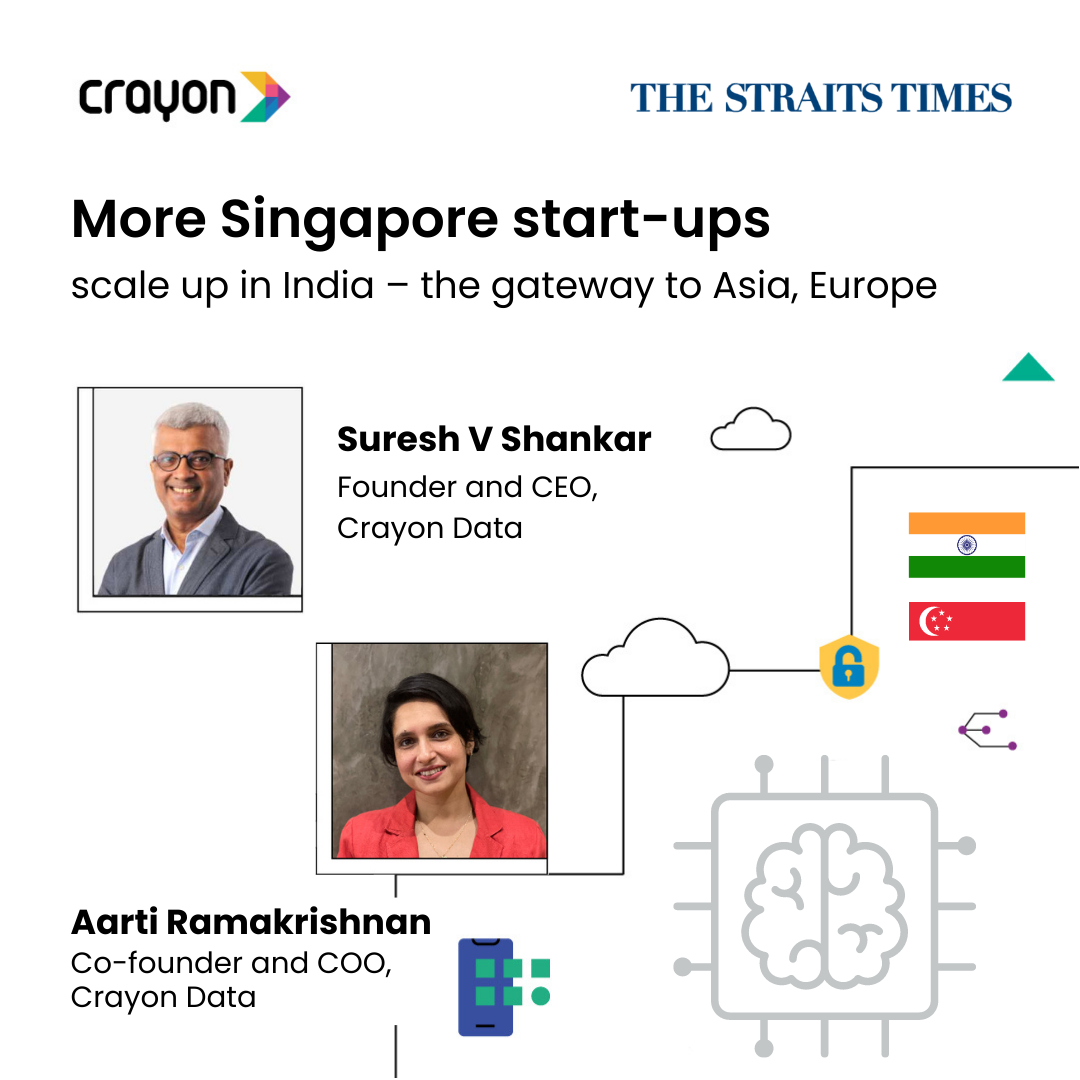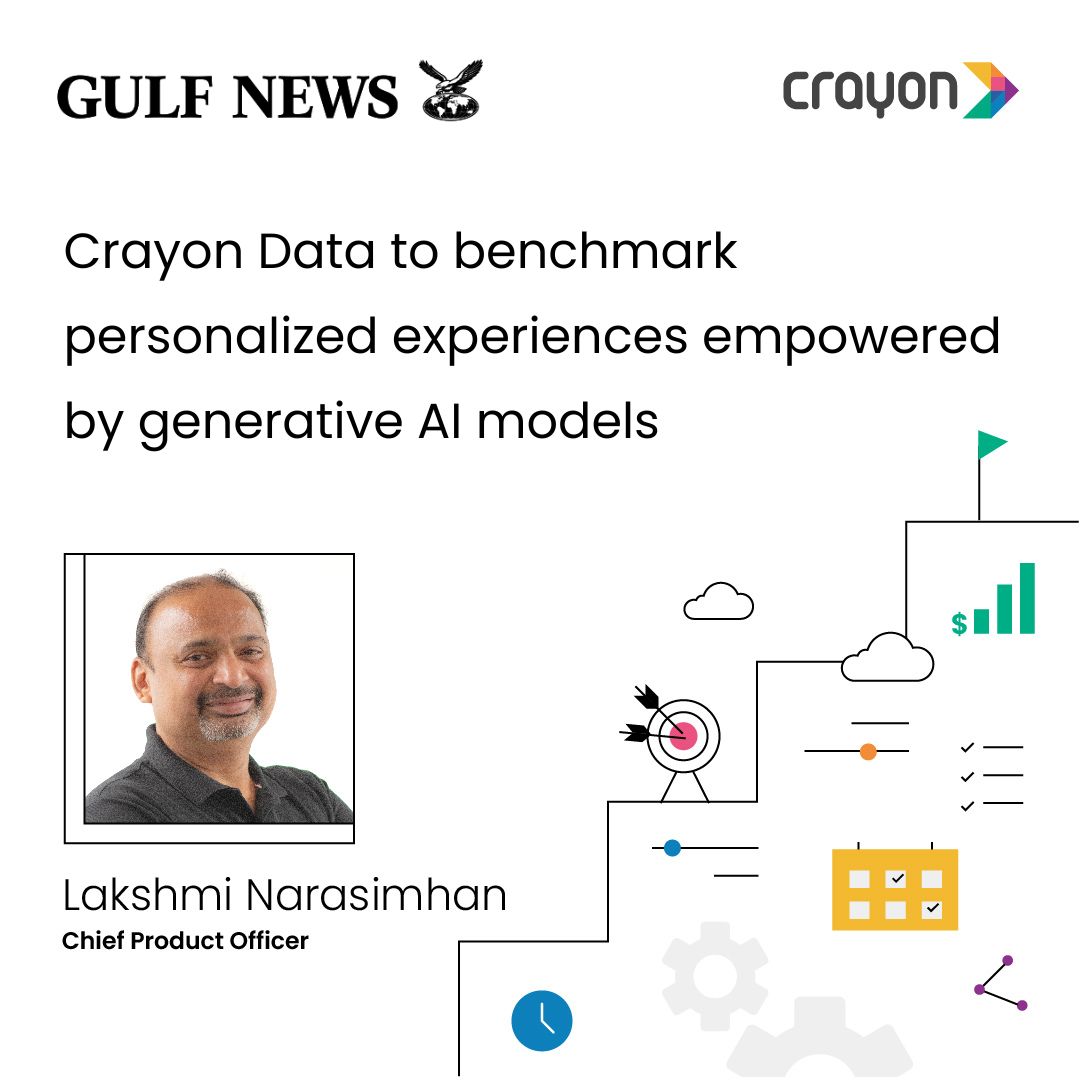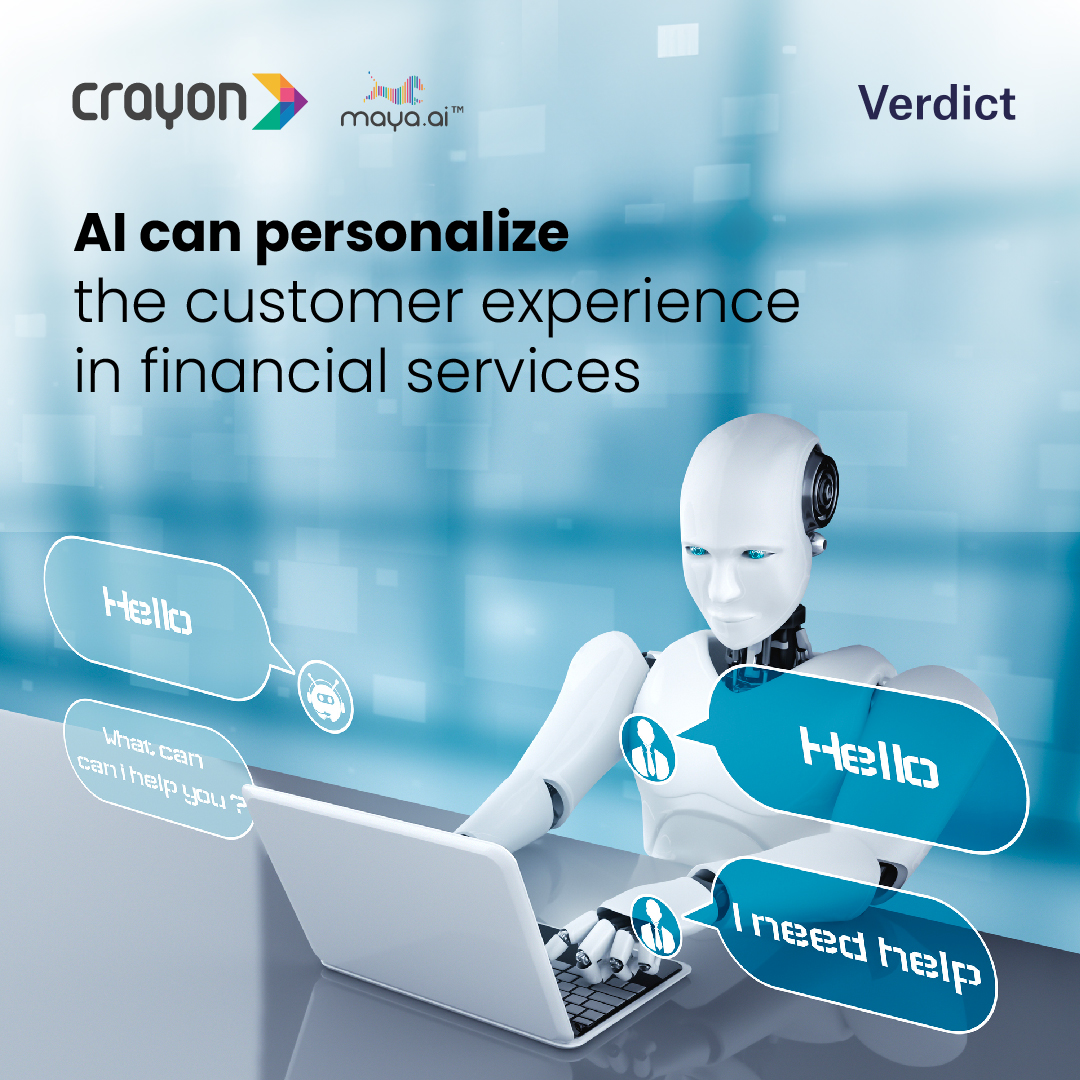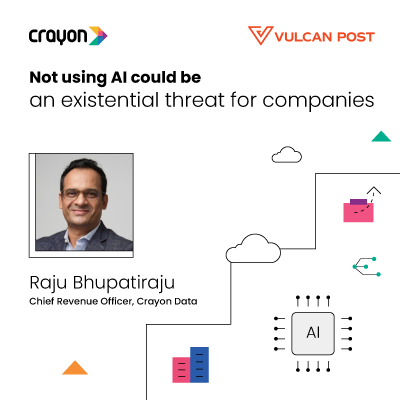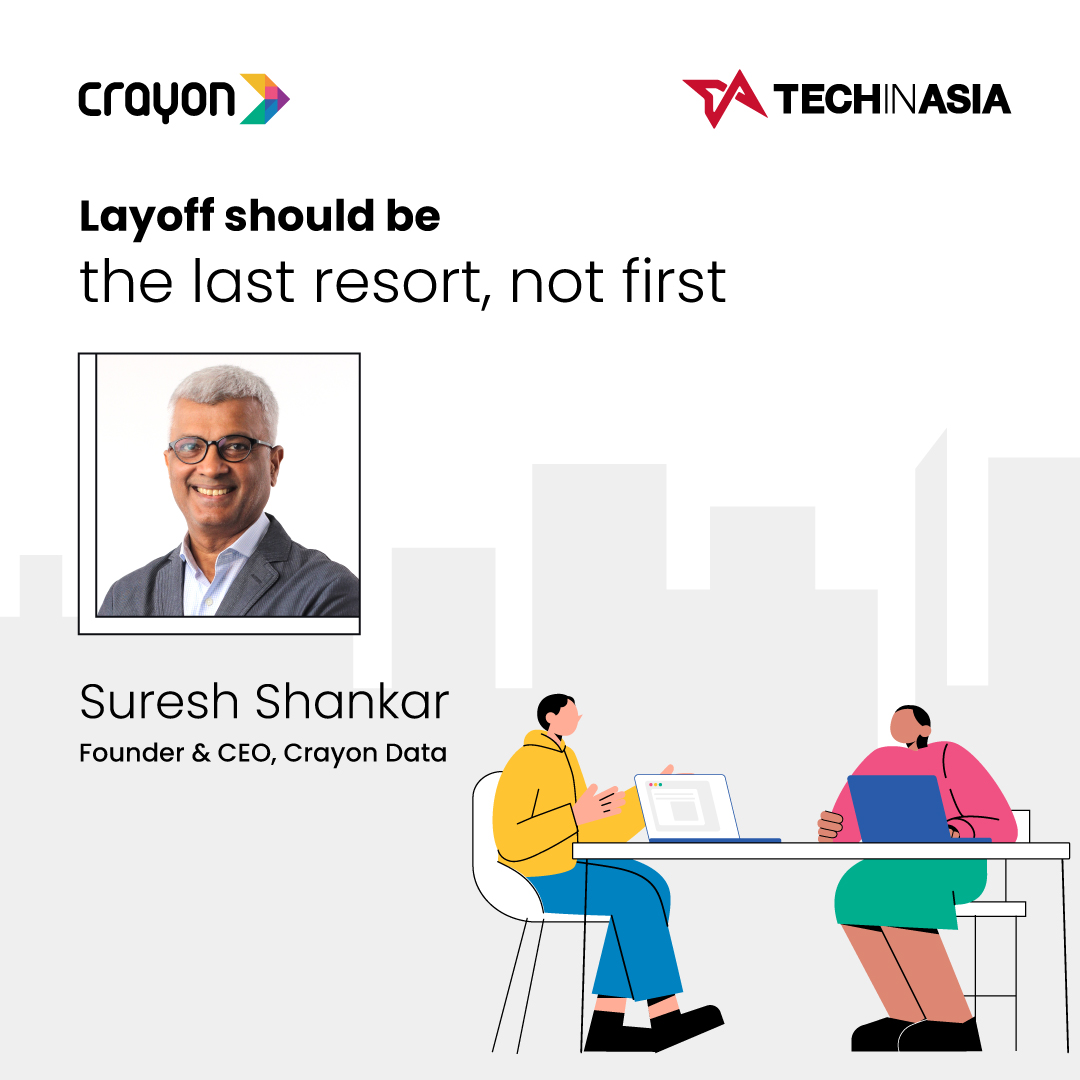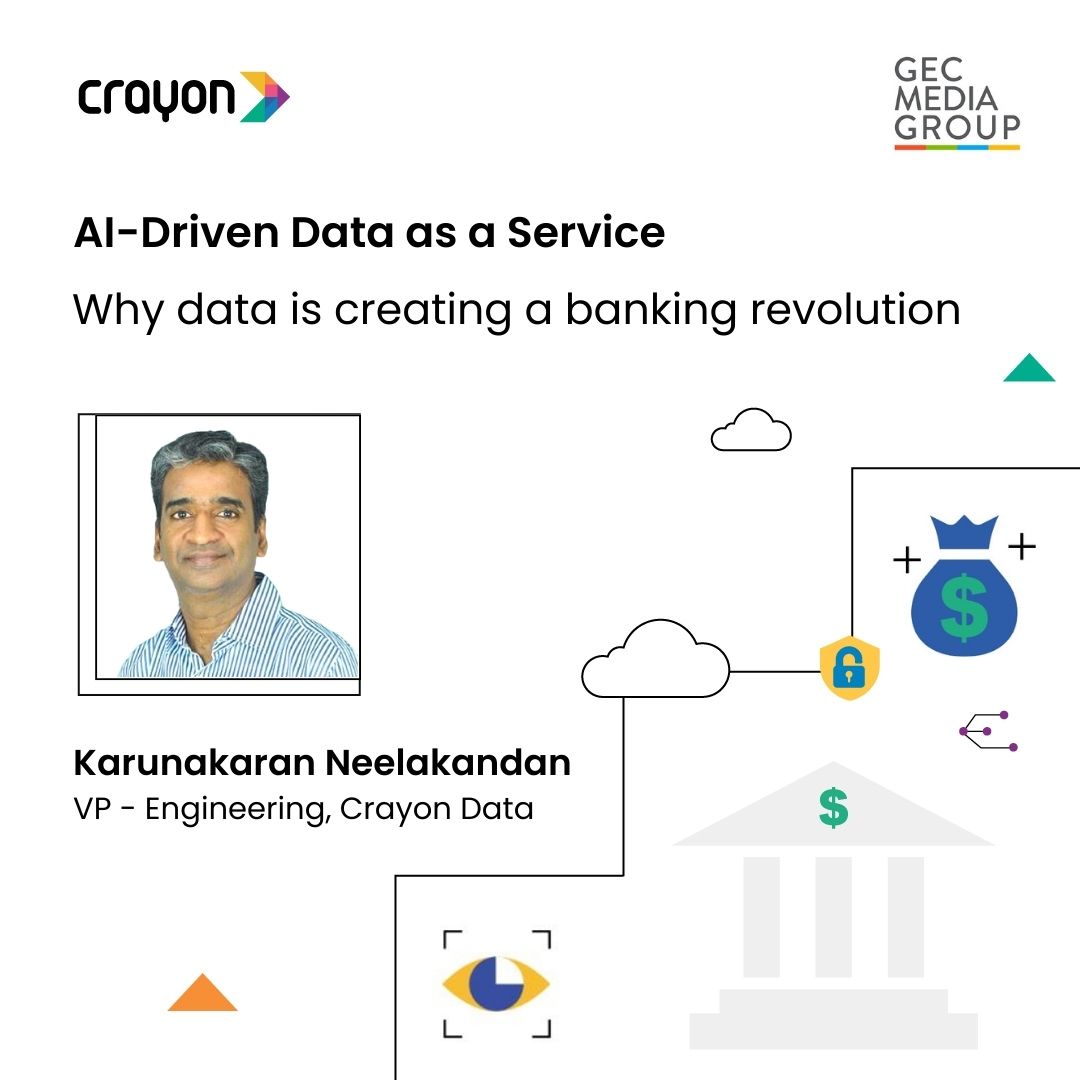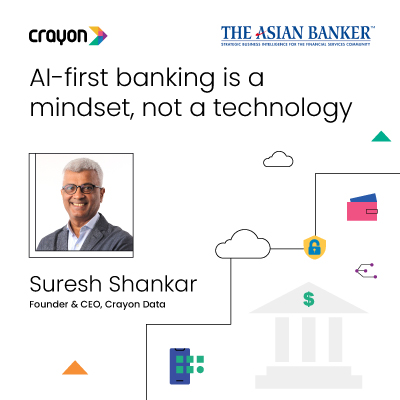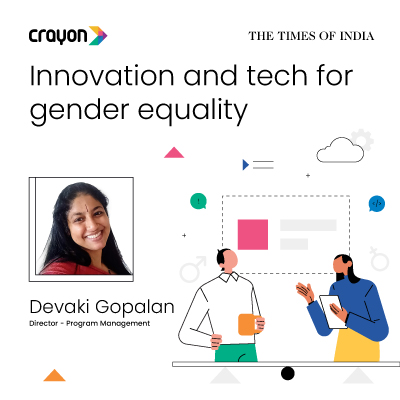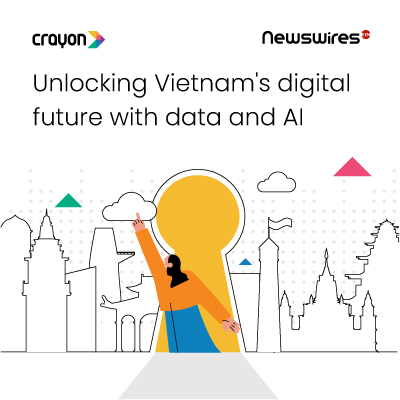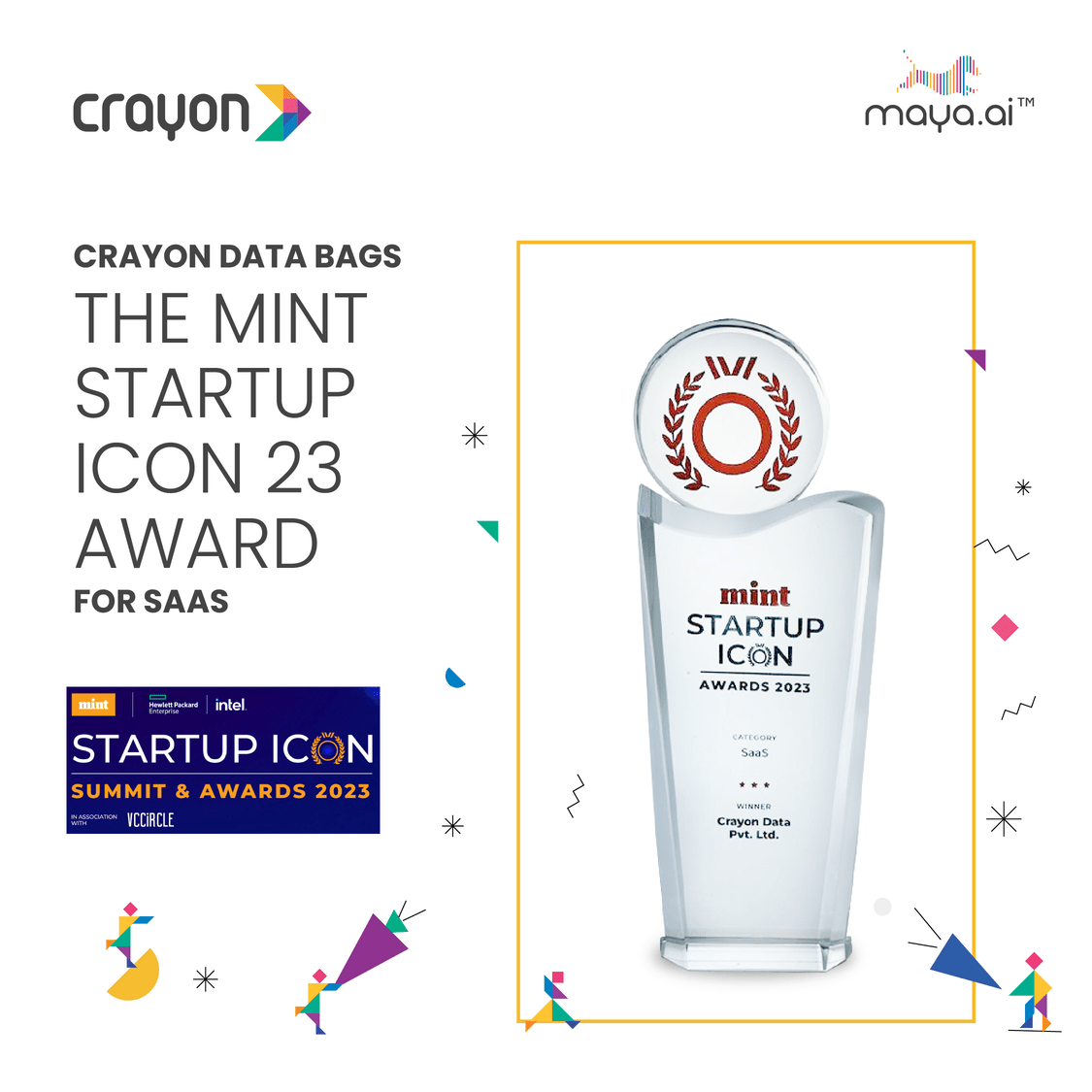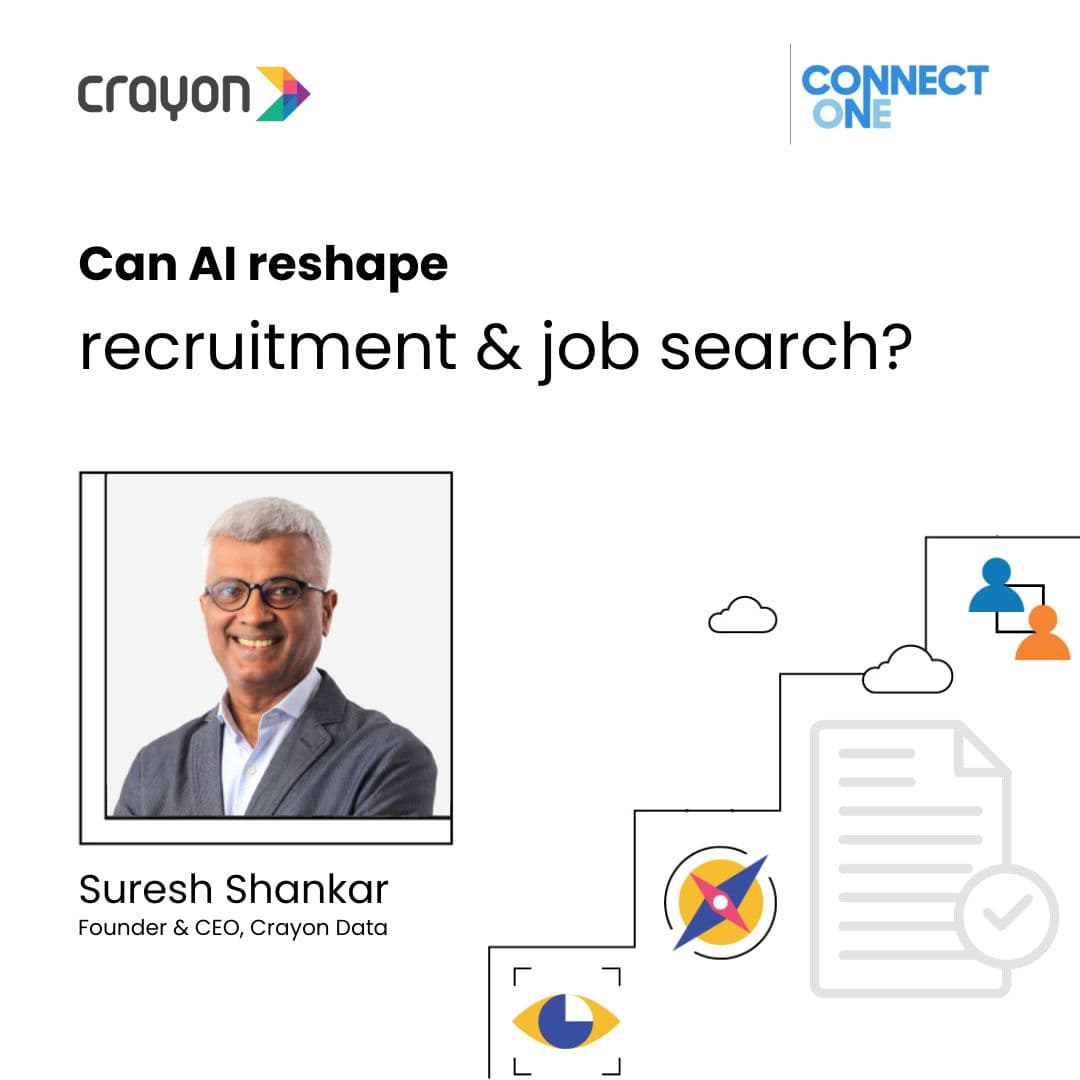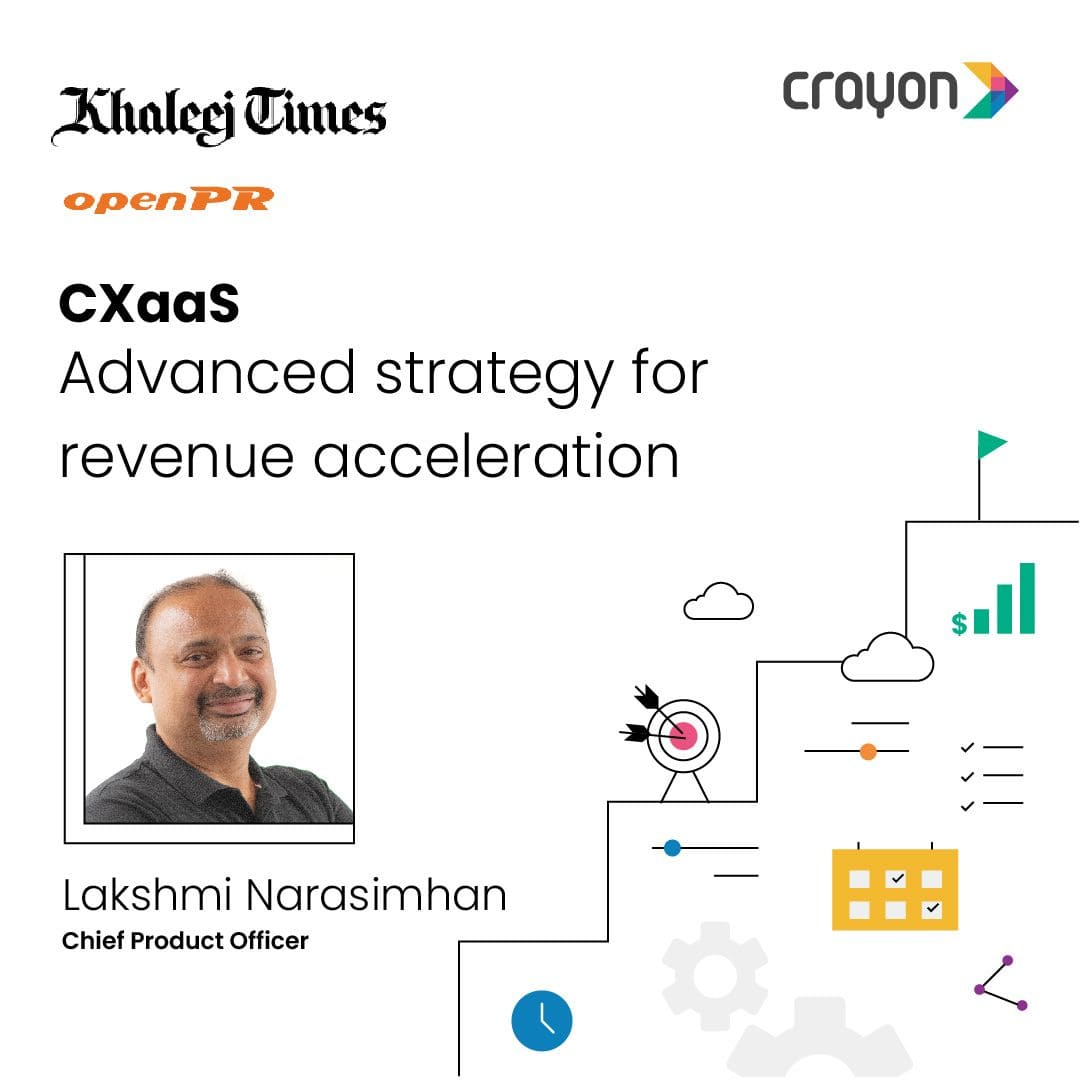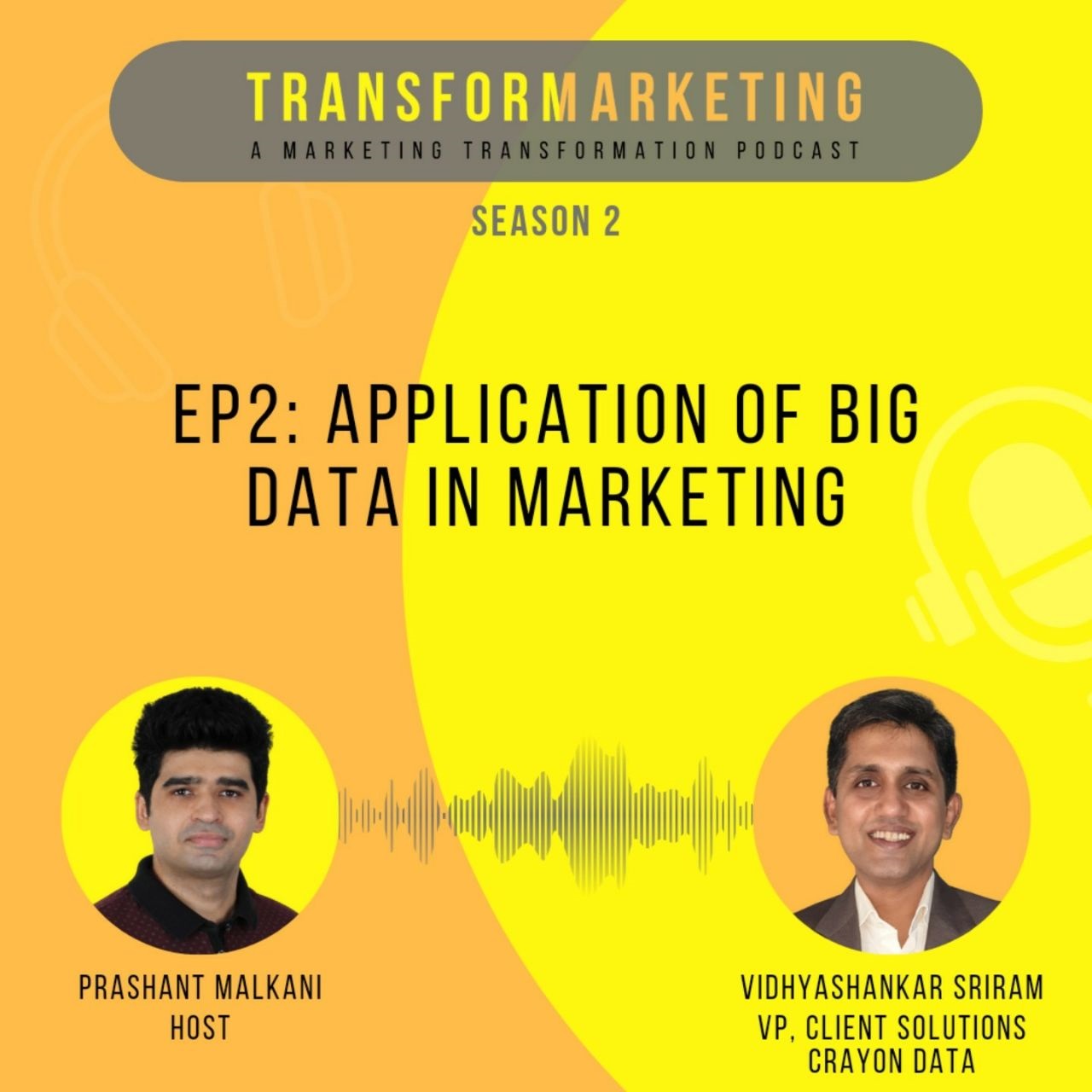
Aarti Ramakrishnan, Co-Founder and Chief of Operations at Crayon Data, has been named one of the Top 10 Most Impactful Women in Technology in 2020 by Analytics Insights. This volume features top female leaders making significant contributions to the world of data science and artificial intelligence. In an interview piece with Analytics Insights, Aarti talks about the journey of her career: how she started out as a management trainee at HDFC Bank, and how she’s grown along the way to now lead a 120-man team at Crayon. She shares three pieces of pragmatic advice for emerging women leaders. Read on for the full interview.
Simplifying Digital Personalization for Organizations through Disruptive Technologies
Source: Analytics Insights, Dec 2020 issue
Crayon Data is a Singapore-based big data and Artificial Intelligence company focused on digital personalization. The company’s mission is to simplify consumer choice. Today, consumers demand relevant recommendations and experiences. Yet, many traditional enterprises like banks, continue to treat them alike, despite knowing their transactions. Crayon’s maya.ai is an AI-platform powering the age of relevance. The company is focused on enabling banks around the world to have truly personal conversations with their customers while being privacy sensitive. Crayon’s patented algorithms work on behaviour and preferences and not identities. The company has helped banks create millions of personalized digital storefronts at scale and speed. Crayon has impacted over 20 million customers while driving billions of dollars in incremental revenues for its clients. The company was recognized as one of the most innovative big data and AI start-ups by global platforms such as Gartner, TIEcon, CEBIT, IBM Watson and OrangeFab.

Leading on a Strong Foundation
Aarti Ramakrishnan is the Co-Founder and Chief of Operations (COO) of Crayon Data. After securing an MBA in Finance, Aarti joined HDFC Bank as a management trainee and was exposed to a wide range of functions within the bank. She later joined the bank’s credit cards division when it was launched. This ignited Aarti’s interest in product management, marketing and analytics– the intersection of data, technology, and marketing. This was deepened when she joined RedPill, a boutique analytics firm that was later acquired by IBM.
Aarti linked up with her boss Suresh Shankar at RedPill in 2012, who is now a co-conspirator of Crayon. Along with Vijaya Kumar Ivaturi, (IVK) Ex-CTO Wipro and Srikant Sastri, Aarti started Crayon Data in 2012. Even though when she presently occupies the role of COO, Aarti has donned many hats in the past eight years such as working with clients on the brand and defining people ethos, and making sure that Crayon is an eclectic and diverse workplace. In her present role, Aarti ensures that the company’s strategy is translated into tangible output across functions. She also guarantees that the organization-wide systems support sustainable and scalable growth for the future.
Aarti’s experience at HDFC Bank (when it was in the growth phase) served as a fantastic foundation. Even as a young professional, Aarti was entrusted with independent responsibility to set up systems and processes, and manage teams. This was cemented at RedPill, where she was given charge of the marketing function with no prior experience. It taught Aarti to look below the surface and trust her instincts about people and actively seek out, and nurture growth environments. She was lucky to have had great bosses (all men who have both challenged and supported her) and mentors (mainly women co-workers and leaders whom Aarti has actively sought inspiration from) throughout her career.
Voluntarily Taking Challenges to Explore New Things
Aarti opines that on the professional side of things, she was possibly choosing between going down an established route with a well-defined growth path and venturing into something exciting and challenging, but was greenfield and comparatively risky. This was a choice she faced many times in her career with advantages on both sides depending on the phase of life Aarti was in, at that point. Her inherent bias was towards exploring the new, which has sometimes led to compromises in perceived career and financial growth as compared to her peers.
Aarti adds that on the personal side of things, the challenges she faced were trying to balance significant life events with inflexion points in her career. She highlights that perhaps, the choices she made gave her the flexibility and the breathing space to manage both.
Enable and Enforce: Core Competencies of Transformational Leaders
Aarti emphasizes that a transformational leader needs to be an enabler and not an enforcer. She mentions that they need to wholeheartedly place trust in their teams to promote a culture of ‘responsibility with freedom’ within their organizations. Leaders now face the added challenge of managing a remote workforce. Employees need to know that they are trusted by their leaders to self-manage and are allowed to experiment. Based on Aarti’s experience at Crayon, she presumes that the situation also means taking ownership for a result and outcome. She adds that when transformational leaders trust their employees, they let them earn the right to self-manage. Moreover, the employees too don’t take it for granted.
Aarti believes in being constructively candid. She states that it is even more important today as everyone is working with a new wave of young talents who approach work with a different philosophy. Leaders need to lead not just with honesty, but also with respect and empathy. Aarti points out that it is difficult to achieve this and requires much practice. However, it definitely results in immense growth.
Innovating to Change From Traditional Enterprise to a Disruptive Solution Provider
Aarti believes that innovation is what sets start-ups apart from traditional enterprises and it is something Crayon Data takes pride about. To begin with, the company’s vision is carefully crafted to ensure its solutions stand the test of time. Crayon keeps the promise by deeply integrating themselves with their clients’ plans, staying connected with the ecosystem surrounding the industry and practising outside-in thinking. The company takes its time to find the right talent and makes certain that it provides the clients with an environment that promotes creative solutions to everyday problems. Finally, Crayon keeps data squarely at the centre of its decision-making process. Age and prior experience are no qualifier at the company. Henceforth, anyone can raise a question or provide a solution. If one has the majority of numbers to back up a decision, then the whole company rallies around the individual (irrespective of seniority) and the numbers. Crayon uses data at all levels of planning and decision making, whether it is the company’s own internal operations or in its UX design.
Technology as The Precursor of Business Strategy and Leadership
Aarti claims that disruptive technologies and its accessibilities have shaken up the paradigm. It has left most large enterprises scrambling to keep up. Even traditionally, change-averse industries like banking have been shaken up by the slew of tech disruptions taking place all around. She highlights that this is where Crayon thrives. Aarti affirms that all the company’s solutions are built using the latest technology and the team feels proud about making these capabilities available to Crayon’s clients faster than anyone else can.
Aarti asserts that to be a leader in this environment, primarily, one must have a firm ground in technology coupled with an understanding of client’s business needs. Secondly, they should realize that there are many hurdles faced by traditional enterprises when it comes to adopting modern technology. For them, the best-suited use case needs to be figured out. Finally, the solutions should leverage new technology but also account for the inevitable emergence of newer technologies. Hence, some amount of future-proofing is needed. Aarti adds that Crayon has spent much time listening and understanding the business challenges of its clients. The company also puts on an effort to do research and adapt innovative technology. In this way, the leaders in emerging tech ensure that their solutions have real-world applicability.
Aarti implies that as leaders in the AI personalization space, they also do their part to share their knowledge and expertise with the world. Crayon’s leaders have launched a podcast on demystifying the age of AI called ‘Slaves to the Algo,’ hosted by the company’s CEO where they speak to other leaders and technologists in the space. Crayon has also put out its proprietary research and findings in a report named ‘The Relevance Quotient,’ which helps banks to navigate the murky waters of consumer personalization in a post-Covid world.
Expecting a Digital Twist in the Post-Pandemic World
Aarti asserts that Crayon knows the world will change drastically post-pandemic. The company has seen first-hand evidence in the changes of its client’s portfolios. Banks and traditional enterprises are finally recognizing the importance of being digital-first, whether in their customer conversations or internal operations. She thinks that it is a massive win for banks and AI solution providers like Crayon. Aarti says that she is excited to see more banks innovate with their huge volumes of data and place personalization at the forefront of their strategies.
Pragmatic Advice to Emerging Women Leaders
Aarti lists several things that have held her in good stead. She insists emerging women leaders to follow them.
- Accept that priorities can change. There can be a ‘swerve’ in career and many roads can lead to the same destination.
- Be aware of the importance of planning. If it’s not on Aarti’s calendar, it’s not happening. Important meetings at work, football matches, concerts, birthday dinners, etc. find a place there.
- Finally, develop a support system in people and processes. It’s about being transparent and asking for help (and likewise, offering it) when needed whether it is with family, friends or with the team at work.
“Technologies like AI and machine learning becomes disruptive only when you know how to apply it to a real-world problem. That’s the crux of it. Identifying the right tech, applying it to the business problem, and building a scalable solution is necessary.”
– Aarti Ramakrishnan, Co-Founder and Chief of Operations of Crayon Data
Source: Analytics Insights
